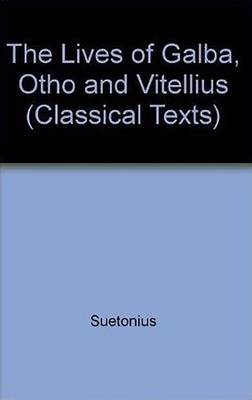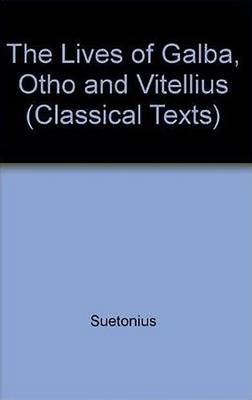
- Afhalen na 1 uur in een winkel met voorraad
- Gratis thuislevering in België vanaf € 30
- Ruim aanbod met 7 miljoen producten
- Afhalen na 1 uur in een winkel met voorraad
- Gratis thuislevering in België vanaf € 30
- Ruim aanbod met 7 miljoen producten
Zoeken
Omschrijving
Suetonius has often been used as if he were an historian, and at the same time criticised for not being one. This is a new translation of and commentary on Suetonius' biographies of three emperors, Galba, Otho, and Vitellius, who held power for short periods in the tumultuous and confused events that encompassed and followed the end of the Julio-Claudian period in AD 69. The introductory essays discuss Suetonius' purposes and qualities as a writer, and seek to elucidate the personalities and careers of the three emperors as well as the events of which they were a part. The importance of this study lies in the fact that it applies fresh understanding of these events to Suetonius' accounts, comparing them to the chief 'alternative' to be found in the works of Tacitus, Plutarch and Dio Cassius. The careers and reigns of the three emperors are discussed in the introduction, whilst the 'minor characters' involved in the events are treated, as relevant, in the commentary; this is constructed with the non-Latinist in mind, and the notes are appended to the translation rather than to the Latin text. Latin text with facing-page translation.
Specificaties
Betrokkenen
- Auteur(s):
- Uitgeverij:
Inhoud
- Aantal bladzijden:
- 224
- Taal:
- Engels
- Reeks:
Eigenschappen
- Productcode (EAN):
- 9780856685378
- Verschijningsdatum:
- 1/10/1994
- Uitvoering:
- Hardcover
- Formaat:
- Genaaid
- Afmetingen:
- 149 mm x 210 mm
- Gewicht:
- 476 g

Alleen bij Standaard Boekhandel
+ 125 punten op je klantenkaart van Standaard Boekhandel
Beoordelingen
We publiceren alleen reviews die voldoen aan de voorwaarden voor reviews. Bekijk onze voorwaarden voor reviews.











